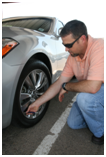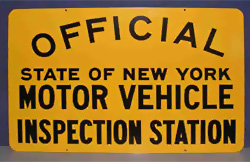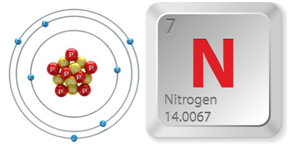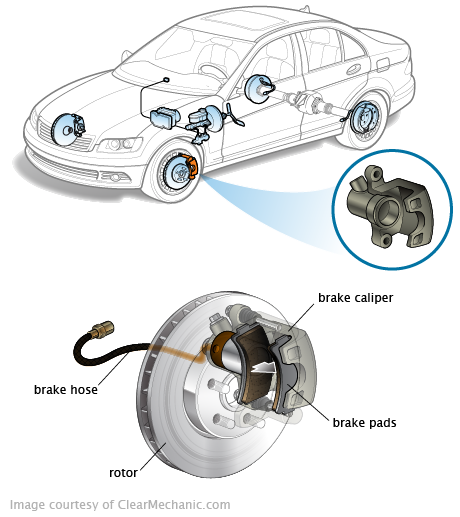Posted on 9/13/2016

Pros and cons of using Nitrogen to inflate your tires (Part 3) This is part 3 of our series on using Nitrogen to inflate your tires. · Click here for part one. · Click here for part two. Drawbacks you can expect when using nitrogen inflation. 1. Regardless of its ability to stay put within the tire, nitrogen is still a gas and eventually you will need to restore the pressure of your tires by topping them off. When this happens, nitrogen can only be topped off by nitrogen. The alternative, which is filling it up using compressed air, is a slow and tedious affair that involves deflating the tire completely before re-inflating it using compressed air. 2. To fill your tires with nitrogen, you will need to dig deeper into your pockets. It might save you money at the pump due to the ... read more
Posted on 9/9/2016

Understanding the New York State Automotive Safety Inspections Requirements (Part 3) This is part 3 of our series on New York State safety inspections. · Click here for part one. · Click here for part two. Emissions inspections for cars and light trucks The Federal Clean Air Act passed in 1990 requires that the New York State carries out an inspection program towards minimizing dangerous emissions from mainly passenger cars and light-duty trucks. The inspection is carried out jointly with the safety inspection. When a vehicle fails the emissions inspection, it cannot be registered and if it already registered, it may not be renewed. On-Board Diagnostics Generation II (OBDII) Inspection This inspection requ ... read more
Posted on 9/8/2016

Pros and cons of using Nitrogen to inflate your tires (Part 2) Please click here for part one of our series on nitrogen fill for your tires. Benefits of Nitrogen tire inflation1. Provides more consistent inflation. As much as compressed air is still widely used, it is important to note that one of the most detrimental properties of oxygen is the permeability of its molecules. The rate at which oxygen seeps out of the tires causes them to lose up to 3PSI per month. Nitrogen has significantly larger molecules than oxygen, being as much as four times larger than oxygen molecules. This property makes nitrogen-filled tires unable to lose pressure through permeation no matter how long it takes. Therefore, it enables your tires to maintain optimum pressure for longer periods of time without the need to top them up constantly. Keeping the tire pressure constant ... read more
Posted on 9/7/2016

Pros and cons of using Nitrogen to inflate your tires (Part 1) Nitrogen has recently emerged as an ideal alternative for inflation of tires. As many drivers are switching from traditional air inflation, it is important to know exactly what gives nitrogen the edge over compressed air inflation and what this could mean for you. Using Nitrogen to keep your tires inflated · You may wonder what the difference is filling with nitrogen since it already makes up about 78% of the air. Despite nitrogen being the main component of atmospheric air, it still contains oxygen and the noble gases. The noble gases are not really an issue here, but rather it is the lack of oxygen. · Compressed air not only contains oxygen and other gases but also significantly contributes to the formation of moisture in the tire. Compressed nitrogen is often pure as it has been stripped of all the other atmospheric components. · Oxygen molecules are smaller than ... read more
Posted on 9/6/2016

Brake RepairImportant brake repair and maintenance tips (Part 4)NOTE: This is part 4 of 106St Tire & Wheel's series on brake repair. · Click here for part 1. · Click here for part 2. · Click here for part 3. But what, then, are brakes even made of? Well, there are three main types of material, each with its own benefits. Let's look into what they do. · Ceramic– this is not exactly the same material you'll find on your dinner table. It does, however, have a lot of the same benefits. The reason why ceramic is used for food is that it insulates high temperatures, and the more advanced heavy-duty ceramic used in brakes also handles the heat and fricti ... read more